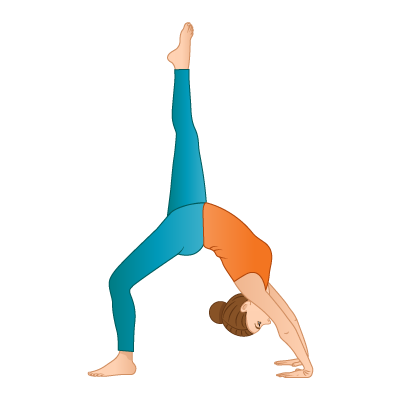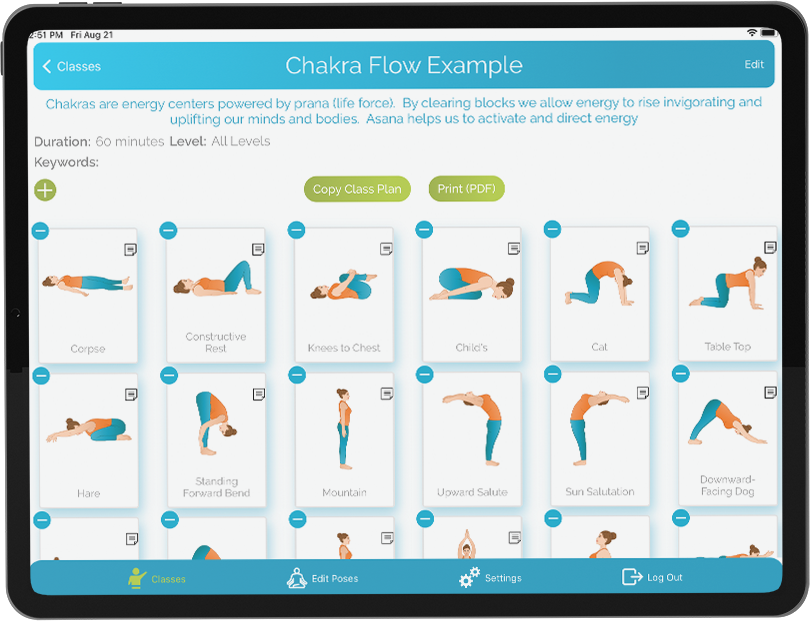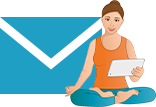One legged Wheel pose
Eka Pada Chakrasana

STEPS
One legged Wheel pose is a deep backbend that stretches and energises the whole body. One legged Wheel pose is a variation of wheel pose, an advanced posture that requires a flexible spine as well as strong legs and arms. It is recommended that practioners master basic and intermediate backbends before attempting this posture
Begin in a lying down position with the knees bent and feet soles on the ground. The feet should be hips width apart with the heels touching the hips. Place the palms on the floor beside each ear, with the fingers pointing towards the shoulders. When ready press the hips upward. Arch the back and press the chest toward the chin. Fully straighten the arms and bring the eye gaze towards the floor (as for a handstand). Straighten the legs, by walking the hands and feet towards each other. Bend the right leg and bring the knee towards the chest. Straighten the leg and point the toes skyward. Take five breaths. To exit the pose, bend the knee and return the foot to the floor. Bend the elbows and knees. Slowly release the back to the ground, vertebrae by vertebrae. Repeat the other side
TEACHER QUEUES
VISUALIZATION COMMENTS
To keep the hips square in full wheel, imagine the hip bones are headlights. The beams should point directly above the hips onto the ceiling. To move towards one-legged wheel, point the knee and then toes of the lifted leg to touch the same spot. To keep back and neck relaxed, imagine you are suspended by a golden thread connecting your belly button to the ceiling.
TECHNICAL COMMENTS
When in full wheel, the shoulders, elbows and wrists should be in one line. When extending one leg upward, lift onto the ball of the standing foot. Deeply arch the back. To maintain the integrity of the pose, keep pressing chest forward towards the chin, so shoulders are over the hands.
BENEFIT COMMENTS
- Strengthens the legs and arms
- Improves flexibility of wrists, shoulders and spine
- Stimulates spinal nerves and reproductive glands
- Improves circulation and respiration
WATCH OUT FOR
- Collapsing hips (walk feet and hands in towards each other)
- Collapsing arms (use straps)
- Twisting hips (keep lifted leg bent towards chest, square hips)
CONTRAINDICATIONS
- Wrist and back injuries
- Pregnancy
- High blood pressure and heart ailments
MODIFICATIONS
- Practice with two partners; each holding either of a strap or towel placed under the hips
- Practice with shoulders resting between two chairs
- Practice one-legged bridge
VARIATIONS
- Lower forearms to ground
- Hold ankle of standing foot
- Place foot of extended leg onto knee
- Place extend leg across standing leg
- Touch head to foot underneath body
YOGA COUNTER POSES
- Head to knee pose (Pavanamuktasana)
- Happy Baby pose (Ananda Balasana)
- Child pose (Balasana)
- Plough pose (Halasana)
- Corpse pose (Savansana)
Written By: Brenda Hamlet
Brenda Hamlet is a RYT 200 yoga teacher and journalist. More information about Brenda can be found at https://www.facebook.com/brendahamletyoga



